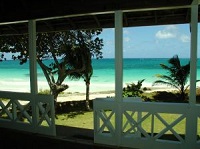Jamaica is one of the jewels of the Caribbean with its incredible coastline, natural beauty and friendly people. The lively culture is marked by great music, good food and a characteristic optimism, in spite of the poverty and hardship witnessed by much of the country. As an expat in Jamaica, you can look forward to a wholesome experience and life here will never be dull. However, there is a side to Jamaica that has many visitors to the country concerned.
Crime and Safety
Crime has always been a growing problem in Jamaica. Kingston, the capital city and also the largest city in the country, sees frequent criminal activity. There is a serious problem of violent crime here, but there is no evidence that such activity is meant to target foreigners.The main drivers for crime in Jamaica are poverty, drugs, gang activity, retribution and politics. There have been cases of gang violence and shooting, but these remain restricted to the inner city areas such as West Kingston, August Town, Harbour View and Grant’s Pen. Public demonstrations are also held in Kingston and other cities. Expats should avoid these, as robberies are common at such events. The tourist hubs of the country see a great deal of petty theft and pickpocketing. Mobile police patrols are present to avert such activity, but it is important to be vigilant about your belongings. Avoid going alone to isolated neighborhoods or deserted beaches, even at daytime. Stay alert also when withdrawing cash from ATMs. Avoid having a large amount of money with you and also avoid wearing expensive jewelry. Another thing to avoid in Jamaica is travelling by bus at night.
The Jamaican police are not able to patrol most neighborhoods and therefore burglaries are commonplace. The police force is understaffed and there may be some amount of police corruption. The police also tend to be more vigilant during the tourist season and during the period between September to November, when tourism is slow, many police officers take their leaves. Many of the wealthier residents prefer to have private armed guards for their protection and to act as deterrence to criminals. The year 2013 saw both an increase in the murder rate, and a reduction in the rate of other serious violent crimes. The decrease may be attributed to an improvement in policing. Again, it must be emphasized that crime in Jamaica is not targeted at international visitors or residents. It is usually the outcome of severe poverty and gang politics.
There is a legal and cultural intolerance of homosexuality in Jamaica and the authorities may show indifference to victims of hateful or prejudiced behavior. But fortunately the bias is not as rigid as it was before.
Road travel
For those who aren’t familiar with driving in cities like Kingston; it’s best to avoid it since getting lost may place you and your passengers in personal danger. Jamaica witnesses a great deal of road accidents and fatalities. The roads are not very well maintained and signage is poor. The rural areas especially have rather bad roads, which are narrow and lit poorly. Drivers and pedestrians need to exercise caution on the roads.
Both drivers and all passengers must wear seat belts. Keep the doors and windows of your vehicle locked and avoid keeping any expensive belongings in places where they can be visible from the outside. Those who are riding motorcycles must wear helmets. Natural disasters such as tropical storms and hurricanes do occur in Jamaica and these can contribute to risky driving conditions. You can stay prepared by checking your routes before you set out. If you need to use taxis or minibuses for going out somewhere or for airport transfers, make sure to use only those that are approved by the Jamaica Tourist Board (JTB). Avoid hailing taxis on the streets and also be wary of sharing taxis with strangers.
Natural Disasters
The Caribbean goes through the hurricane season usually from June to November. It is advisable to check for weather updates before making any plans to go out during these times. Jamaica is also prone to earthquakes and it is important to know the safety precautions that are required before, during and after an earthquake.

